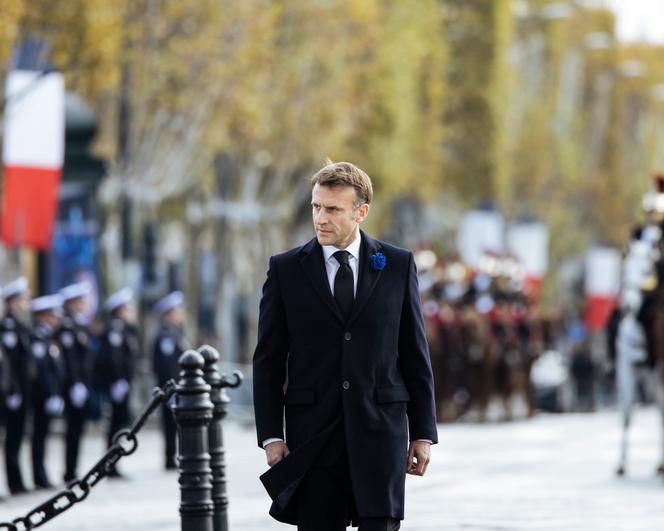


On May 14, 1990, France's president, François Mitterrand, joined a large procession against racism and anti-Semitism held after a Jewish cemetery in Carpentras, in the south of the country, was desecrated by neo-Nazis. Some 200,000 people marched in Paris. The Socialist president marched down the asphalt amid the anonymous crowd and took his place in this moment of French history: "My presence is enough," he said
Thirty years have passed, and his present-day successor, Emmanuel Macron, let several days pass before eventually choosing not to take part in the "civic march" against anti-Semitism, held on Sunday, November 12. The previous Tuesday, at a dinner at the Elysée Palace with Prime Minister Elisabeth Borne, Assemblée Nationale President Yaël Braun Pivet and senior ministers such as Bruno Le Maire (Finance), most of the guests suggested to the president that he avoid mingling with the crowd. Macron listened, without saying a word.
In speaking out repeatedly in recent days to justify this belated decision, the president claimed the role of somone who "acts" rather than demonstrating. "Who defines the right cause for which the president must march?" asked one of his advisers, irritated by the controversy surrounding his absence. Macron has rejected any "constraint or injunction to mobilize himself in the future," continued the same adviser, describing a figure who is primarily concerned with maintaining his position of distant authority.
Since Hamas's terrorist attack on Israel on October 7, Macron has sought a balanced position that would offend neither French Jews nor French Muslims, adjusting his stance from day to day, at the risk of causing confusion. "There's a kind of courage in nuance and moderation. Even if it comes at the price of rather facile accusations of a lack of clarity," asserted the head of state's former speechwriter, Jonathan Guémas, who is in charge of "rebuttal and argumentation" for the president's Renaissance party.
Since Sunday, questions have been flooding the Telegram groups used by MPs from the governing coalition. Deep down, what is Macron's position on this conflict? During his October 24 meeting with Israeli Prime Minister Benjamin Netanyahu, the president agreed that Israel had the right to wage a struggle "without mercy, but not without rules" against Hamas, breaking with the line set for France by Mitterrand and De Gaulle of defending of the Palestinian cause.
But then Macron did an about-face, moved by the speakers at the humanitarian conference on Gaza, held in Paris on November 9, and having heard the harsh critiques of diplomats worried that France might take a pro-Israeli turn. Confounding his own supporters, Macron called for a ceasefire, in an interview with the BBC broadcast on November 10, and urged Israel to stop "the permanent bombing of civilians in Gaza", where "there's babies, there's ladies, there's old people are bombed and killed," arguing that "there is no justification precisely to attack civilians."
You have 70% of this article left to read. The rest is for subscribers only.
